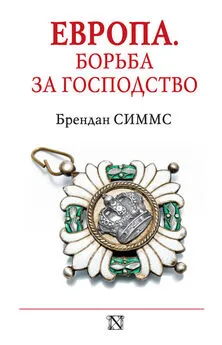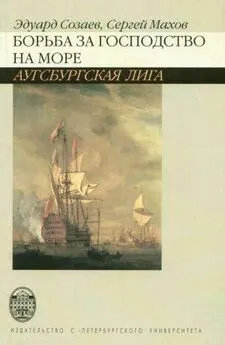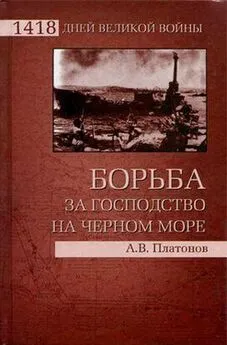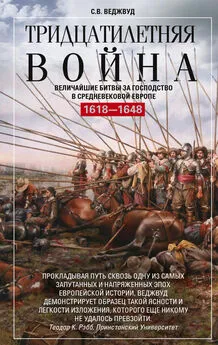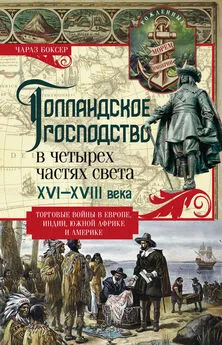Брендан Симмс - Европа. Борьба за господство
- Название:Европа. Борьба за господство
- Автор:
- Жанр:
- Издательство:Литагент АСТ
- Год:2017
- Город:Москва
- ISBN:978-5-17-095456-8, 978-5-17-100628-0
- Рейтинг:
- Избранное:Добавить в избранное
-
Отзывы:
-
Ваша оценка:
Брендан Симмс - Европа. Борьба за господство краткое содержание
Борьба оружия и дипломатии, культурного, религиозного, политического и экономического влияния…
Какие же страны одерживали верх в этой борьбе?
А какие были отброшены назад?
Каким государствам удалось подняться после разрушительных поражений?
А какие так и остались на обочине истории?
На эти и другие вопросы отвечает в своей книге Брендан Симмс – известный британский историк, профессор, директор Центра международных исследований Кембриджского университета.
Европа. Борьба за господство - читать онлайн бесплатно ознакомительный отрывок
Интервал:
Закладка:
53
О нежелании Елизаветы вторгаться в Нидерланды: Simon Adams, ‘Elizabeth I and the sovereignty of the Netherlands, 1576–1585’, in Transactions of the Royal Historical Society, Sixth Series, XIV (2004), pp. 309–19. 319
54
Michael Roberts, Gustavus Adolphus (London and New York, 1992), pp. 59–72, and ‘The political objectives of Gustav Adolf in Germany, 1630–2’, in Roberts, Essays in Swedish History (London, 1967), pp. 82–110. The quotations from Gustavus Adolphus and the Rijkstag are in Erik Ringmar, Identity, interest and action. A cultural explanation of Sweden’s intervention in the Thirty Years War (Cambridge, 1996), p. 112. Oxenstierna is quoted in Peter H. Wilson (ed.), The Thirty Years War. A Sourcebook (Basingstoke and New York, 2010), p. 133.
55
‘Swedish Manifesto. 1630’, in Wilson (ed.), Thirty Years War. A Source-book, p. 122. The concerns about the Habsburgs ‘drawing nearer to the Baltic provinces’ are clearly spelled out on pp. 123–4. The ‘liberty of Germany’ is invoked in the final paragraph, p. 130.
56
Sigmund Goetze, Die Politik des schwedischen Reichskanzlers Axel Oxenstierna gegenüber Kaiser und Reich (Kiel, 1971), pp. 75–90.
57
Пожизненным диктатором ( лат .) . Примеч. ред.
58
Quoted in Michael Roberts, ‘Oxenstierna in Germany’, in Roberts, From Oxenstierna to Charles XII. Four studies (Cambridge, 1991), p. 26.
59
О важности для испанцев Германии: Charles Howard Carter, The secret diplomacy of the Habsburgs, 1598–1625 (New York and London, 1964), p. 58.
60
Quoted in Osiander, States system of Europe, p. 79.
61
Gülru Necipoğ lu, ‘Süleyman the Magni cent and the representation of power in the context of Ottoman – Habsburg – Papal rivalry’, The Art Bulletin, 71 (1989), pp. 401–27, especially pp. 411–12. 412
62
Goffman, Ottoman Empire and Early Modern Europe, pp. 107–8. Важность Центральной Европы и Средиземноморья: Metin Kunt and Christine Woodhead (eds.), Süleyman the Magnificent and his age. The Ottoman Empire in the Early Modern world (London, 1995), pp. 24 and 42–3. 43
63
Quoted in Karl Brandi, Kaiser Karl V. Wenden und Schicksal einer Persönlichkeit und eines Weltreiches (Munich, 1959), p. 78.
64
Quoted in John M. Headley, ‘Germany, the Empire and Monarchia in the thought and policy of Gattinara’, in Lutz (ed.), Das römisch-deutsche Reich, p. 18.
65
Henry J. Cohn, ‘Did bribes induce the German electors to choose Charles V as emperor in 1519?’, German History, 19, 1 (2001), pp. 1–27.
66
Headley, ‘Germany, the Empire and Monarchia’, in Lutz (ed.), Das römisch-deutsche Reich, pp. 15–33, especially pp. 18–19 (quotations pp. 16 and 22).
67
Matthias Schnettger and Marcello Verga (eds.), Das Reich und Italien in der Frühen Neuzeit (Berlin and Bologna, 2000). О стычке между Максимилианом и Карлом: Hermann Wies ecker, Kaiser Maximilian I. Das Reich, Österreich und Europa an der Wende zur Neuzeit (Munich, 1975) (quotation p. 50). О “мессианских” амбициях Карла: Haran, Le lys et le globe, pp. 39–40.
68
Quoted in Heinrich Lutz, ‘Kaiser Karl V., Frankreich und das Reich’, in Lutz et al., Frankreich und das Reich im 16. und 17. Jahrhundert, pp. 7–19 (quotation p. 13).
69
Quoted in William F. Church, Richelieu and reason of state (Princeton, NJ, 1972), p. 287.
70
Stella Fletcher, Cardinal Wolsey. A life in Renaissance Europe (London and New York, 2009), pp. 61–2.
71
C. S. L. Davies, ‘Tournai and the English crown, 1513–1519’, Historical Journal, 41 (1998), pp. 1–26, especially pp. 11–12.
72
Euan Cameron, The European Reformation (Oxford, 1991), pp. 99–110.
73
John W. Bohnstedt, The in del scourge of God. The Turkish menace as seen by German pamphleteers of the Reformation era (Philadelphia, 1968), pp. 12–13 and 23–5.
74
Dieter Mertens, ‘Nation als Teilhabeverheissung: Reformation und Bauernkrieg’, in Dieter Langewiesche and Georg Schmidt (eds.), Föderative Nation. Deutschlandkonzepte von der Reformation bis zum Ersten Weltkrieg (Munich, 2000), pp. 115–34, especially pp. 117–18 and 125–32. Также: Klaus Arnold, ‘“… damit der arm man vnnd gemainer nutz iren furgang haben”… Zum deutschen “Bauernkrieg” als politischer Bewegung: Wen – del Hiplers und Friedrich Weigandts Pläne einer “Reformation” des Reiches’, in Zeitschrift für historische Forschung, 9 (1982), pp. 257–313, especially pp. 296–307 on imperial reform plans.
75
Andrew Pettegree, The Reformation and the culture of persuasion (Cambridge, 2005), especially pp. 185–210; R. W. Scribner, For the sake of simple folk. Popular propaganda for the German Reformation (Cambridge, 1981); and Peter Lake and Steven Pincus (eds.), The politics of the public sphere in Early Modern England (Manchester and New York, 2007), especially pp. 1–30.
76
Diarmaid MacCulloch, Reformation. Europe’s house divided, 1490–1700 (London, 2003), especially pp. 124–5. О порожденном Реформацией ощущении уязвимости: Robert von Friedeburg, Self-defence and religious strife in Early Modern Europe. England and Germany, 1530–1680 (Aldershot, 2002).
77
Claus-Peter Clasen, The Palatinate in European history, 1555–1618 (Oxford, 1963), especially pp. 10–11; and Volker Press, ‘Fürst Christian I. von Anhalt-Bernburg, Statthalter der Oberpfalz, Haupt der evangelischen Bewegungspartei vor dem Dreissigjährigen Krieg (1568–1630)’, in Konrad Ackermann and Alois Schmid (eds.), Staat und Verwaltung in Bayern (Munich, 2003), pp. 193–216.
78
D. J. B. Trim, ‘Calvinist internationalism and the shaping of Jacobean foreign policy’, in Timothy Wilks (ed.), Prince Henry revived. Image and exemplarity in Early Modern England (London, 2007), pp. 239–58. О самом любопытном агенте “кальвинистского интернационала”: Hugh Trevor-Roper, Europe’s physician. The various life of Sir Theodore de Mayerne (New Haven, 2006).
79
Cecil on the German princes is cited in David Trim, ‘Seeking a Protestant alliance and liberty of conscience on the continent, 1558–85’, in Susan Doran and Glenn Richardson (eds.), Tudor England and its neighbours (Basingstoke, 2005), pp. 139–77 (p. 157).
80
Peter H. Wilson, ‘The Thirty Years War as the Empire’s constitutional crisis’, in R. J. W. Evans, Michael Schaich and Peter H. Wilson (eds.), The Holy Roman Empire, 1495–1806 (Oxford, 2010), pp. 95–114.
81
Heinz Duchhardt, Protestantisches Kaisertum und altes Reich. Die Diskussion über die Konfession des Kaisers in Politik, Publizistik und Staatsrecht (Wiesbaden, 1977), pp. 326–30.
82
R. A. Stradling, Spain’s struggle for Europe, 1598–1668 (London, 1994).
83
Zúñiga and Onate are quoted in Eberhard Straub, Pax et imperium. Spaniens Kampf um seine Friedensordnung in Europa zwischen 1617 und 1635 (Paderborn and Munich, 1980), pp. 116–17.
84
Brennan C. Pursell, The Winter King. Frederick V of the Palatinate and the coming of the Thirty Years War (Aldershot, 2003).
85
Thomas Brockmann, Dynastie, Kaiseramt und Konfession. Politik und Ordnungsvorstellungen Ferdinands II im Dreissigjährigen Krieg (Paderborn, 2009).
86
Heinz Duchhardt, ‘Das Reich in der Mitte des Staatensystems. Zum Verhältnis von innerer Verfassung und internationaler Funktion in den Wandlungen des 17. und 18. Jahrhunderts’, in Peter Krüger (ed.), Das europäische Staatensystem im Wandel. Strukturelle Bedingungen und bewegende Kräfte seit der Frühen Neuzeit (Munich, 1996), pp. 1–9; and Christoph Kampmann, Europa und das Reich im Dressigjährigen Krieg. Geschichte eines europäischen Kon ikts (Stuttgart, 2008).
87
Quoted in R. J. Knecht, The Valois. Kings of France, 1328–1589 (London, 2004), p. 144.
88
Maurice Keen, ‘The end of the Hundred Years War: Lancastrian France and Lancastrian England’, in Michael Jones and Malcolm Vale (eds.), England and her neighbours, 1066–1453 (London and Ronceverte, W. Va, 1989), pp. 297–311, especially pp. 299–301.
89
О существовании публичной сферы до изобретения книгопечатания и значимости английских войн: Clementine Oliver, Parliament and political pamphleteering in fourteenth-century England (Woodbridge, 2010), p. 4 and passim.
90
Cited in Helen Castor, Blood and roses (London, 2004), p. 60.
91
G. L. Harriss, ‘The struggle for Calais: an aspect of the rivalry between Lancaster and York’, The English Historical Review, LXXV, 294 (1960), pp. 30–53, especially pp. 30–31.
92
Alexandra Gajda, ‘Debating war and peace in late Elizabethan England’, Historical Journal, 52 (2009), pp. 851–78.
93
Noel Malcolm, Reason of state, propaganda, and the Thirty Years’ War. An unknown translation by Thomas Hobbes (Oxford, 2007), especially pp. 74–8, and Robert von Friedeburg, ‘“Self-defence” and sovereignty: the reception and application of German political thought in England and Scotland, 1628–69’, History of Political Thought, 23 (2002), pp. 238–65.
94
Almut Höfert, Den feind beschreiben. Türkengefahr und europäisches Wissen über das Osmanische Reich 1450–1600 (Frankfurt, 2003), and Robert Schwoebel, The shadow of the crescent. The Renaissance image of the Turk (1453–1517) (Nieuwkoop, 1967).
95
Caspar Hirschi, Wettkampf der Nationen. Konstruktionen einer deutschen Ehrgemeinschaft an der Wende vom Mittelalter zur Neuzeit (Göttingen, 2005), pp. 12, 159, and passim.
96
Alfred Schröcker, Die deutsche Nation. Beobachtungen zur politischen Propaganda des ausgehenden 15. Jahrhunderts (Lübeck, 1974), pp. 116–45, and Joachim Whaley, Germany and the Holy Roman Empire, 1493–1806, 2 vols. (Oxford, 2011).
97
Elliott, ‘Foreign policy and domestic crisis’, in Elliott, Spain and its world, especially, pp. 118–19.
98
Sharon Kettering, Power and reputation at the court of Louis XIII. The career of Charles d’Albert, duc de Luynes (1578–1621) (Manchester and New York, 2008), pp. 217–42.
99
Интервал:
Закладка:
